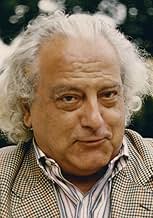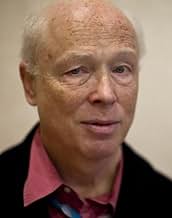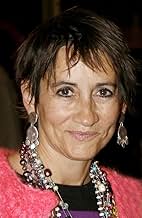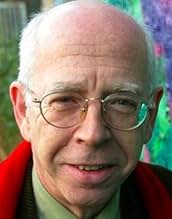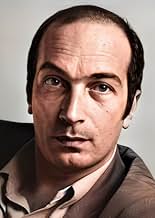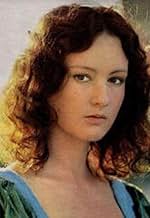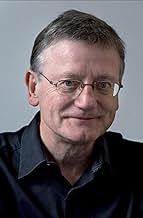La maman et la putain
IMDb RATING
7.7/10
7.4K
YOUR RATING
The chauvinist Alexandre balances relationships with several women in the post-1968 intellectual scene of Paris.The chauvinist Alexandre balances relationships with several women in the post-1968 intellectual scene of Paris.The chauvinist Alexandre balances relationships with several women in the post-1968 intellectual scene of Paris.
- Awards
- 3 wins & 1 nomination total
Jean-Claude Biette
- Un homme aux Deux Magots
- (uncredited)
Jean Douchet
- Un homme au Café de Flore
- (uncredited)
Bernard Eisenschitz
- Maurice
- (uncredited)
Jean Eustache
- Le mari de Gilberte
- (uncredited)
- …
Noël Simsolo
- Un homme au Café de Flore
- (uncredited)
- Director
- Writer
- All cast & crew
- Production, box office & more at IMDbPro
Featured reviews
... is because of films like this.
Don't get me wrong. I like independent cinema, and particularly like good foreign films, but this film could have been cut by at least an hour.
I'll explain.
The film revolves around a self centered young man who professes he loves certain women, but is really looking for someone to love him. Enter a woman who doesn't love herself, but finds this same young man, taps his energy, and both wind up "flowering" for it.
This movie revolves around the sexual morays and politics of a small group of Parisians. The film starts out very strong. Actors present characters in an extended first act that we would like to get to know, but, unfortunately this pic becomes the poster boy for the proverbial "long boring French film" replete with characters who light up cigarettes and talk in either cafés or materially spartan rented rooms about how life should be different, and what it all means. Toss in an Oedipal complex/undercurrent, and you have the quintessential French avante-garde flick.
Huh.
Inspite of this there's some good material in this film, but director Jean Eustache (probably to make up for lack of scheduling and some technical aspects) throws a lot of dialog at the audience that would've have been better served with some visual cues.
All in all it shows how messed up an certain sect of French culture really is, and, perhaps ironically, drives home a realist message regarding the act of coupling.
Technically it's bare bones. Lots of natural lighting is fused with high contrast B&W cinematography, and to add to the rugged feel of the film the scratch track is used. Little to no looping of dialog. You can hear what pros call "room tone" as it was actually recorded during filming.
I could go off the deep end and call this film self-indulgent, pretentious et al, but will say instead that the exposition given to the story was "over-exposed" (for lack of a better term). The symbolism is fine, but a lack of visuals and a borderline in-you-face delivery of certain dialog, hampers what could have been a much better film. By that I don't mean commercially successful nor accessible, but a film that could have delivered the same gists, character and message without the flaunting its strive for artistic excellence.
Don't get me wrong. I like independent cinema, and particularly like good foreign films, but this film could have been cut by at least an hour.
I'll explain.
The film revolves around a self centered young man who professes he loves certain women, but is really looking for someone to love him. Enter a woman who doesn't love herself, but finds this same young man, taps his energy, and both wind up "flowering" for it.
This movie revolves around the sexual morays and politics of a small group of Parisians. The film starts out very strong. Actors present characters in an extended first act that we would like to get to know, but, unfortunately this pic becomes the poster boy for the proverbial "long boring French film" replete with characters who light up cigarettes and talk in either cafés or materially spartan rented rooms about how life should be different, and what it all means. Toss in an Oedipal complex/undercurrent, and you have the quintessential French avante-garde flick.
Huh.
Inspite of this there's some good material in this film, but director Jean Eustache (probably to make up for lack of scheduling and some technical aspects) throws a lot of dialog at the audience that would've have been better served with some visual cues.
All in all it shows how messed up an certain sect of French culture really is, and, perhaps ironically, drives home a realist message regarding the act of coupling.
Technically it's bare bones. Lots of natural lighting is fused with high contrast B&W cinematography, and to add to the rugged feel of the film the scratch track is used. Little to no looping of dialog. You can hear what pros call "room tone" as it was actually recorded during filming.
I could go off the deep end and call this film self-indulgent, pretentious et al, but will say instead that the exposition given to the story was "over-exposed" (for lack of a better term). The symbolism is fine, but a lack of visuals and a borderline in-you-face delivery of certain dialog, hampers what could have been a much better film. By that I don't mean commercially successful nor accessible, but a film that could have delivered the same gists, character and message without the flaunting its strive for artistic excellence.
In what could have been seen as a coup towards the sexual "revolution" (purposefully I use quotations for that word), Jean Eustache wrote and directed The Mother and the Whore as a poetic, damning critique of those who can't seem to get enough love. If there is a message to this film- and I'd hope that the message would come only after the fact of what else this Ben-Hur length feature has to offer- it's that in order to love, honestly, there has to be some level of happiness, of real truth. Is it possible to have two lovers? Some can try, but what is the outcome if no one can really have what they really want, or feel they can even express to say what they want?
What is the truth in the relationships that Alexandre (Jean-Pierre Leaud) has with the women around him? He's a twenty-something pseudo-intellectual, not with any seeming job and he lives off of a woman, Marie (Bernadette Lafont) slightly older than him and is usually, if not always, his lover, his last possible love-of-his-life left him, and then right away he picks up a woman he sees on the street, Veronika (Françoise Lebrun), who perhaps reminds him of her. Soon what unfolds is the most subtly torrid love triangle ever put on film, where the psychological strings are pulled with the cruelest words and the slightest of gestures. At first we think it might be all about what will happen to Alexandre, but we're mistaken. The women are so essential to this question of love and sex that they have to be around, talking on and on, for something to sink in.
We're told that part of the sexual revolution, in theory if not entirely in practice (perhaps it was, I can't say having not been alive in the period to see it first-hand), was that freedom led to a lack of inhibitions. But Eustache's point, if not entirely message, is that it's practically impossible to have it both ways: you can't have people love you and expect to get the satisfaction of ultimate companionship that arrives with "f***ing", as the characters refer over and over again.
The Mother and the Whore's strengths as far as having the theme is expressing this dread beneath the promiscuity, the lack of monogamy, while also stimulating the intellect in the talkiest talk you've ever seen in a movie. At the same time we see a character like Alexandre, who probably loves to hear himself talk whether it's about some movie he saw or something bad from his past, Eustache makes it so that the film itself isn't pretentious- though it could appear to be- but that it's about pretentiousness, what lies beneath those who are covering up for their internal flaws, what they need to use when they're ultimately alone in the morning.
If you thought films like Before Sunrise/Sunset were talky relationship flicks, you haven't met this. But as Eustache revels in the dialogs these characters have, sometimes trivial, or 'deep', or sexual, or frank, or occasionally extremely (or in a subdued manner) emotional, it's never, ever uninteresting or boring. On the contrary, for those who can't get enough of a *good* talky film, it's exceptional. While his style doesn't call out to the audaciousness that came with his forerunners in the nouvelle vague a dozen years beforehand, Eustache's new-wave touch is with the characters, and then reverberating on them.
This is realism with a spike of attitude, with things at time scathing and sarcastic, crude and without shame in expression. All three of the actors are so glued to their characters that we can't ever perceive them as 'faking' an emotion or going at all into melodrama. It's almost TOO good in naturalistic/realism terms, but for Eustache's material there is no other way around it. Luckily Leaud delivers the crowning chip of his career of the period, and both ladies, particularly Labrun as the "whore" Veronika (a claim she staggeringly refutes in the film's climax of sorts in one unbroken shot). And, as another touch, every so often, the director will dip into a quiet moment of thought, of a character sitting by themselves, listening to a record, and in contemplation or quiet agony. This is probably the biggest influence on Jim Jarmusch, who dedicated his film Broken Flowers to Eustache and has one scene in particular that is lifted completely (and lovingly) in approach from the late Parisian.
Sad to say, before I saw Broken Flowers, I never heard of Eustache or this film, and procuring it has become quite a challenge (not available on US DVD, and on VHS so rare it took many months of tracking at various libraries). Not a minute of that time was wasted; the Mother and the Whore is truly beautiful work, one of the best of French relationship dramas, maybe even just one of the most staggeringly lucid I've seen from the country in general. It's complex, it's sweet, it's cold, it's absorbing, and it's very long, perhaps too long. It's also satisfying on the kind of level that I'd compare to Scenes from a Marriage; true revelations about the human condition continue to arise 35 years after each film's release.
What is the truth in the relationships that Alexandre (Jean-Pierre Leaud) has with the women around him? He's a twenty-something pseudo-intellectual, not with any seeming job and he lives off of a woman, Marie (Bernadette Lafont) slightly older than him and is usually, if not always, his lover, his last possible love-of-his-life left him, and then right away he picks up a woman he sees on the street, Veronika (Françoise Lebrun), who perhaps reminds him of her. Soon what unfolds is the most subtly torrid love triangle ever put on film, where the psychological strings are pulled with the cruelest words and the slightest of gestures. At first we think it might be all about what will happen to Alexandre, but we're mistaken. The women are so essential to this question of love and sex that they have to be around, talking on and on, for something to sink in.
We're told that part of the sexual revolution, in theory if not entirely in practice (perhaps it was, I can't say having not been alive in the period to see it first-hand), was that freedom led to a lack of inhibitions. But Eustache's point, if not entirely message, is that it's practically impossible to have it both ways: you can't have people love you and expect to get the satisfaction of ultimate companionship that arrives with "f***ing", as the characters refer over and over again.
The Mother and the Whore's strengths as far as having the theme is expressing this dread beneath the promiscuity, the lack of monogamy, while also stimulating the intellect in the talkiest talk you've ever seen in a movie. At the same time we see a character like Alexandre, who probably loves to hear himself talk whether it's about some movie he saw or something bad from his past, Eustache makes it so that the film itself isn't pretentious- though it could appear to be- but that it's about pretentiousness, what lies beneath those who are covering up for their internal flaws, what they need to use when they're ultimately alone in the morning.
If you thought films like Before Sunrise/Sunset were talky relationship flicks, you haven't met this. But as Eustache revels in the dialogs these characters have, sometimes trivial, or 'deep', or sexual, or frank, or occasionally extremely (or in a subdued manner) emotional, it's never, ever uninteresting or boring. On the contrary, for those who can't get enough of a *good* talky film, it's exceptional. While his style doesn't call out to the audaciousness that came with his forerunners in the nouvelle vague a dozen years beforehand, Eustache's new-wave touch is with the characters, and then reverberating on them.
This is realism with a spike of attitude, with things at time scathing and sarcastic, crude and without shame in expression. All three of the actors are so glued to their characters that we can't ever perceive them as 'faking' an emotion or going at all into melodrama. It's almost TOO good in naturalistic/realism terms, but for Eustache's material there is no other way around it. Luckily Leaud delivers the crowning chip of his career of the period, and both ladies, particularly Labrun as the "whore" Veronika (a claim she staggeringly refutes in the film's climax of sorts in one unbroken shot). And, as another touch, every so often, the director will dip into a quiet moment of thought, of a character sitting by themselves, listening to a record, and in contemplation or quiet agony. This is probably the biggest influence on Jim Jarmusch, who dedicated his film Broken Flowers to Eustache and has one scene in particular that is lifted completely (and lovingly) in approach from the late Parisian.
Sad to say, before I saw Broken Flowers, I never heard of Eustache or this film, and procuring it has become quite a challenge (not available on US DVD, and on VHS so rare it took many months of tracking at various libraries). Not a minute of that time was wasted; the Mother and the Whore is truly beautiful work, one of the best of French relationship dramas, maybe even just one of the most staggeringly lucid I've seen from the country in general. It's complex, it's sweet, it's cold, it's absorbing, and it's very long, perhaps too long. It's also satisfying on the kind of level that I'd compare to Scenes from a Marriage; true revelations about the human condition continue to arise 35 years after each film's release.
10yarns
It is not an easy film to watch - it is over three and a half hours long and it is composed entirely of conversations. Yet it is so incredibly compelling and ruthlessly observational of the human character, that it is, in my humble opinion, one of the very greatest films of all time.
The film is depressing, cynical and cruel. (If you want something uplifting, see Jacques Rivette's fantastic Céline and Julie Go Boating, which was made around the same time). It shows the idealism of the late 1960s to be nothing different from the society that it was trying to change.
It involves a supposedly liberated ménage-à-trois between Alexandre (played by Jean-Pierre Leaud), Marie (Bernadette Lafont) and Veronika (Francoise Lebrun). Yet Alexandre is shown to be as chauvinistic and jealous as any other man. The women are exposed as being willingly subservient and defining their femininity through the male gaze.
The film is an extremely icy end to the highly revolutionary French New Wave. This movement was one of the most significant movements in film history and had a profound effect on cinema as we know it. Jean-Pierre Leaud was one of the key actors of the New Wave, having starred (among other films) in the influential Les Quatres Cent Coups (1959) by Francois Truffaut as a rebellious teenager. Director Jean Eustache is not as well known as other directors from the New Wave, but he should be.
There is no improvisation (unlike in John Cassavetes's similar films made in the US) and the dialogue comes from real-life conversations. The film is resonant with Eustache's personal experiences. For example, Francoise Lebrun was a former lover of Eustache. Eustache himself committed suicide in 1981 and the real-life person that the character Marie was based on, did too. The anger and bitterness all culminate in a harrowing monologue by Veronika delivered directly to the audience, breaking down the coldly objective nature of the rest of the film. This mesmerising, personal, and honest filmic statement remains one of the most revealing films of human nature around.
The film is depressing, cynical and cruel. (If you want something uplifting, see Jacques Rivette's fantastic Céline and Julie Go Boating, which was made around the same time). It shows the idealism of the late 1960s to be nothing different from the society that it was trying to change.
It involves a supposedly liberated ménage-à-trois between Alexandre (played by Jean-Pierre Leaud), Marie (Bernadette Lafont) and Veronika (Francoise Lebrun). Yet Alexandre is shown to be as chauvinistic and jealous as any other man. The women are exposed as being willingly subservient and defining their femininity through the male gaze.
The film is an extremely icy end to the highly revolutionary French New Wave. This movement was one of the most significant movements in film history and had a profound effect on cinema as we know it. Jean-Pierre Leaud was one of the key actors of the New Wave, having starred (among other films) in the influential Les Quatres Cent Coups (1959) by Francois Truffaut as a rebellious teenager. Director Jean Eustache is not as well known as other directors from the New Wave, but he should be.
There is no improvisation (unlike in John Cassavetes's similar films made in the US) and the dialogue comes from real-life conversations. The film is resonant with Eustache's personal experiences. For example, Francoise Lebrun was a former lover of Eustache. Eustache himself committed suicide in 1981 and the real-life person that the character Marie was based on, did too. The anger and bitterness all culminate in a harrowing monologue by Veronika delivered directly to the audience, breaking down the coldly objective nature of the rest of the film. This mesmerising, personal, and honest filmic statement remains one of the most revealing films of human nature around.
This it the type of French movie other artists will use as a reference to make a parody after, or to oversimplify and exaggerate french cinema. A lot of talking, and repeating, a lot of overblown emotions, again a lot of talking between two people. This is what I call a boring movie. A movie I watched at 1.5x speed without any remorse.
A movie like many others before and after that show the missery of being part of a love triangle, no matter how open minded you think you are. Because when it comes to true romantic emotions, there is no place for more than two people. I don't think I am a prude but as this film shows and my past experiences taught me it will not end with a happy ending. But the happy ending I got was that it was over.
A movie like many others before and after that show the missery of being part of a love triangle, no matter how open minded you think you are. Because when it comes to true romantic emotions, there is no place for more than two people. I don't think I am a prude but as this film shows and my past experiences taught me it will not end with a happy ending. But the happy ending I got was that it was over.
One of the last classics of the French New Wave. For direction, cineaste Jean Eustache drew from the simplicity of early-century cinema; for story, Eustache drew on the torments of his own complicated love life. So many things can be said of this film - observationally brilliant; self indulgently overlong; occasionally hilarious; emotionally draining...etc. etc. In my mind, whatever complaints that can be leveled against this film are easily overshadowed by its numerous strengths. Every film student, writer, or simply anyone willing to handle a 3 hour film with no abrupt cuts, no music video overstyling, no soap opera-like plot twists, and no banal dialogue should make it a point to see this movie. Everything is to be admired: the writing (concise, clever, surprisingly funny), acting (everyone, quite simply, is perfect in their respective roles), and, simple direction (the viewer feels like a casual observer within the film) make this film unforgettable. This is undoubtedly a film that stays with you.
Did you know
- TriviaThis film is based on the real-life relationship between director Jean Eustache and actress Francoise Lebrun (who plays Veronika). The character based on her is named Gilberte in the movie and is played by Isabelle Weingarten.
- GoofsAlexandre can be seen drinking a bottle of 1970 Gevrey-Chambertin, which would have been far too expensive for him to have purchased. This error is illuminated by his notable lack of money during the cafe scene, in which his date pays for his bill.
- ConnectionsFeatured in Étoiles et toiles: L'érotisme au cinéma (1983)
- SoundtracksIch weiß, es wird einmal ein Wunder gescheh'n
Written by Bruno Balz, Michael Jary and Ralph Benatzky
Performed by Zarah Leander
- How long is The Mother and the Whore?Powered by Alexa
Details
- Release date
- Country of origin
- Official sites
- Language
- Also known as
- The Mother and the Whore
- Filming locations
- Café Les Deux Magots - 6 place Saint-Germain-des-Prés, Paris 6, Paris, France(Alexandre's usual café)
- Production companies
- See more company credits at IMDbPro
Box office
- Gross US & Canada
- $40,555
- Opening weekend US & Canada
- $5,135
- Jun 25, 2023
- Gross worldwide
- $47,344
- Runtime
- 3h 37m(217 min)
- Color
- Sound mix
- Aspect ratio
- 1.37 : 1
Contribute to this page
Suggest an edit or add missing content

